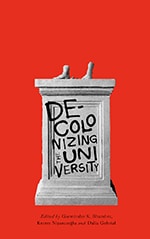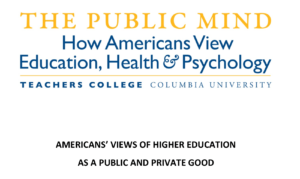Today we look at the power of Participatory Action Research in public science. My guest is Michelle Fine. In the 1990s, she worked on a study called Changing Minds, which looked at the impact of college in a maximum-security prison. The research team comprised of women in and outside of prison.
For Michelle, participatory action research plays an important role in the struggle for social justice. It not only can change legislation, impact critical social theory, and mobilize popular opinion for educational justice; but seemingly small issues can also have deep and lasting implications.
Michelle Fine is a Distinguished Professor at the Graduate Center at the City University of New York where she is a founding member of the Public Science Project.
Citation: Fine, Michelle, interview with Will Brehm, FreshEd, 137, podcast audio, November 26, 2018. https://www.freshedpodcast.com/michellefine/
Transcript, Translation, Resources:
Public Science, Social Injustice, and Resistance

 Many universities worldwide hope to internationalize and push faculty to produce knowledge across disciplines. That’s easier said than done.
Many universities worldwide hope to internationalize and push faculty to produce knowledge across disciplines. That’s easier said than done.